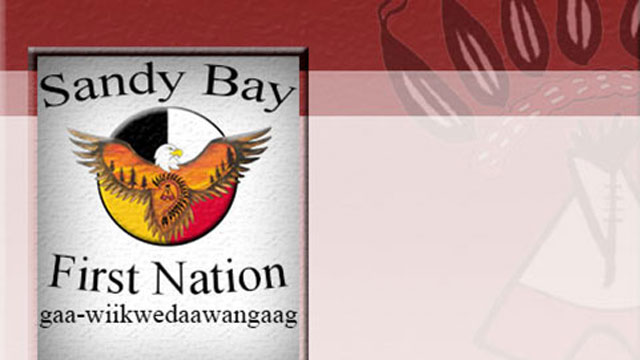
A report detailing alleged accounts of vote-buying in Sandy Bay Ojibway First Nation in Manitoba has been handed over to Indigenous Services Canada.
The 40-page report, written by investigator Larry Hay, contains a series of allegations of the exchange of cash or drugs for votes during the community’s October 2018 election.
In the report, the chief and council deny the allegations.
The allegations have not been proven in court.
APTN News obtained a copy of the investigation that was completed in September.
Current Sandy Bay Ojibway First Nation Chief Lance Roulette along with three of the four current councillors were accused of exchanging cash or drugs for votes.
The report states one band member claimed Roulette paid her $100 one week prior to the election in exchange for her vote.
Transcripts of conversations between Hay and the accuser were included in the document.
“Do you think he was offering it to buy,” Hay asked the voter.
“Yeah, I think so,” she replied.
The same woman alleged she received $80 from Jason Starr, who got re-elected as a councillor.
A second band member claimed she also received money from both Starr and Michael Dumas, who was also re-elected as a councillor.
During a face-to-face interview with Hay she claimed the transactions took place in the parking lot of the community complex in view of other voters who were exchanging money for votes.
“They came up to me and they said, ‘you wanna buy votes?’” she said.
Starr gave her $20 and Dumas gave her $40 on the first day of voting, she alleges.
One band member described two times where he received $40 and “about a quarter” of cannabis from Starr for what he believed was his vote.
He alleged this occurred during two encounters in August 2018.
“Before the election [Starr] gave me some weed again, and he game me $40 again,” the voter told Hay. “Then he was talking about edible gummies, edible gummy bears that had THC or whatever in there. He said he had a lot of those, but I should have came earlier.”
Hay wrote following the interactions the voter, “found it odd that [Starr] was thanking him after providing him with money.”
The band member said he believed Starr was thanking him for vote-buying.
Another voter claimed he sold his vote to councillor Brian Spence for $30 as well as to Starr for $30 and a package of cigarettes.
In the report, Hay notes the voter did not have a direct transaction with Spence instead he received money from the councillor’s daughter, “during which there was no mention of voting in exchange for the money.”
Roulette, Starr, Dumas and Spence all denied allegations of having engaged in vote-buying.
APTN reached out to Roulette and the accused council members for comment on the report.
In a text, Roulette wrote, “sorry not entertaining that notion,” and referred APTN to the electoral officer for further comment.
The officer in charge was Anita Wilson, who did not respond by deadline.
None of the accused council members responded to APTN.
Hay interviewed 17 individuals, including the main appellant as well as chief and council.
Allegations of vote-buying were first brought forward in affidavits from the main appellant and three band members.
Hay, a licenced private investigator and former police chief of the Tyendinaga Mohawk Police Service, determined there were two cases where there was “direct evidence of vote-buying within the affidavits.”
Following the initial complaints, Hay visited the community to conduct face-to-face interviews. Those interviews and Hay’s observations make up the bulk of the report.
Hay declined to speak with APTN at this time. In an email he said he was only a contractor and could not speak on behalf of Indigenous Services Canada (ISC).
The report noted there was “considerable discussion concerning the candidates,” leading up to the election day. In his observations, Hay discussed concerns about whether, “on-line rumours and unsubstantiated comments,” contributed to the belief vote-buying was widespread.
Hay did not reach further conclusions or make recommendations regarding the accusations.
Secondary allegations regarding the electoral process were included in the report.
The main appellant alleged mail-in ballots weren’t sent out in a timely fashion and on election day many voters were turned away for not having photo identification.
“The allegations regarding the conduct of the election and the concerns over identification of electors appears to be over-stated by the appellants,” Hay wrote.
An official from ISC confirmed an investigation was ordered after the election was appealed.
“ISC takes allegations seriously and makes every attempt to resolve election appeals as quickly as possible. Before a decision can be made, the evidence is carefully evaluated, analyzed and weighed, and procedural fairness is afforded to all those involved,” the department said in an email to APTN.
When asked whether the department would challenge the election, they said, “it is premature to render a decision at this time.”
They added there is no pre-determined time frame to respond to the report citing the department must allow enough time to weigh the evidence as well as conduct internal and external consultations and discussions.
Sandy Bay Ojibway First Nation is located approximately 165 kilometres northwest of Winnipeg. The community has a population of 5,783 with 3,651 living on reserve, according to ISC.










